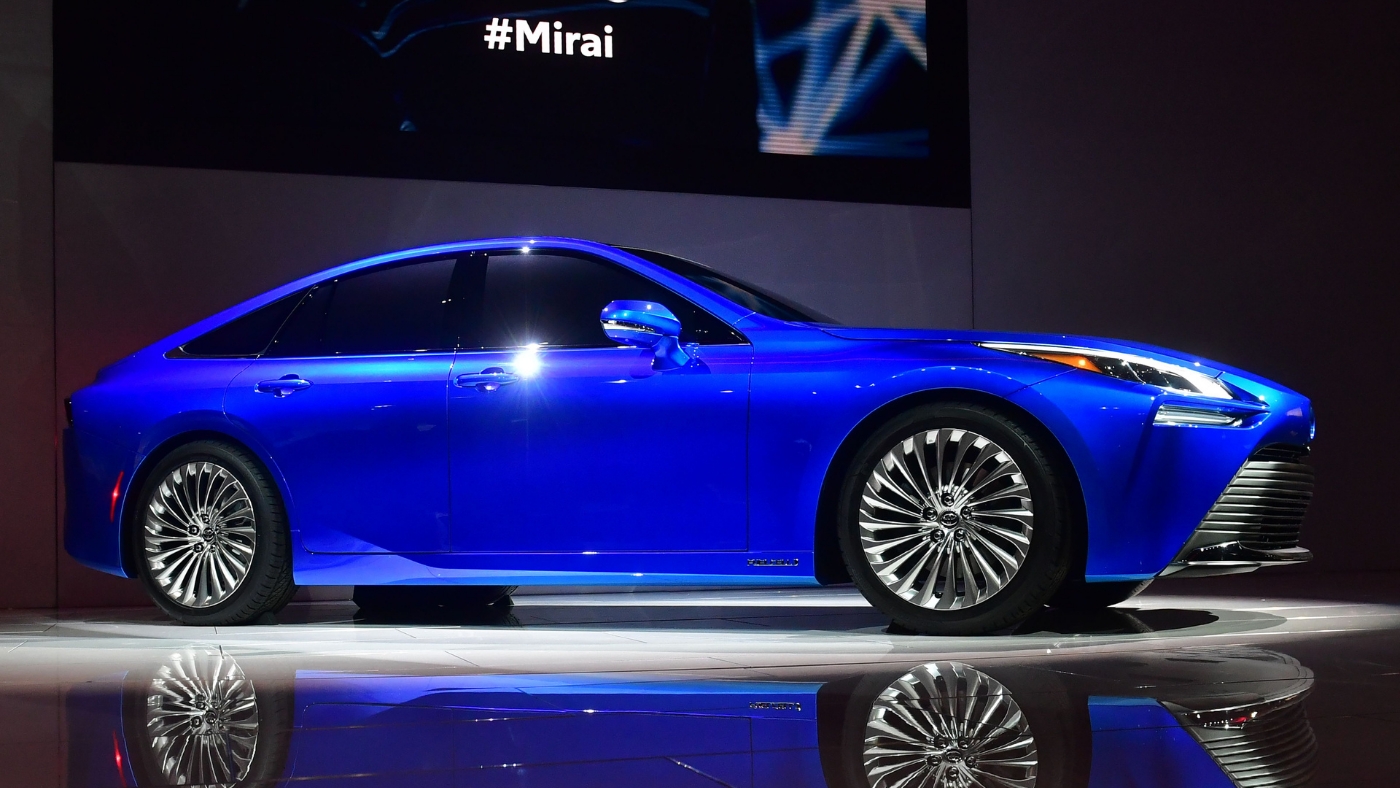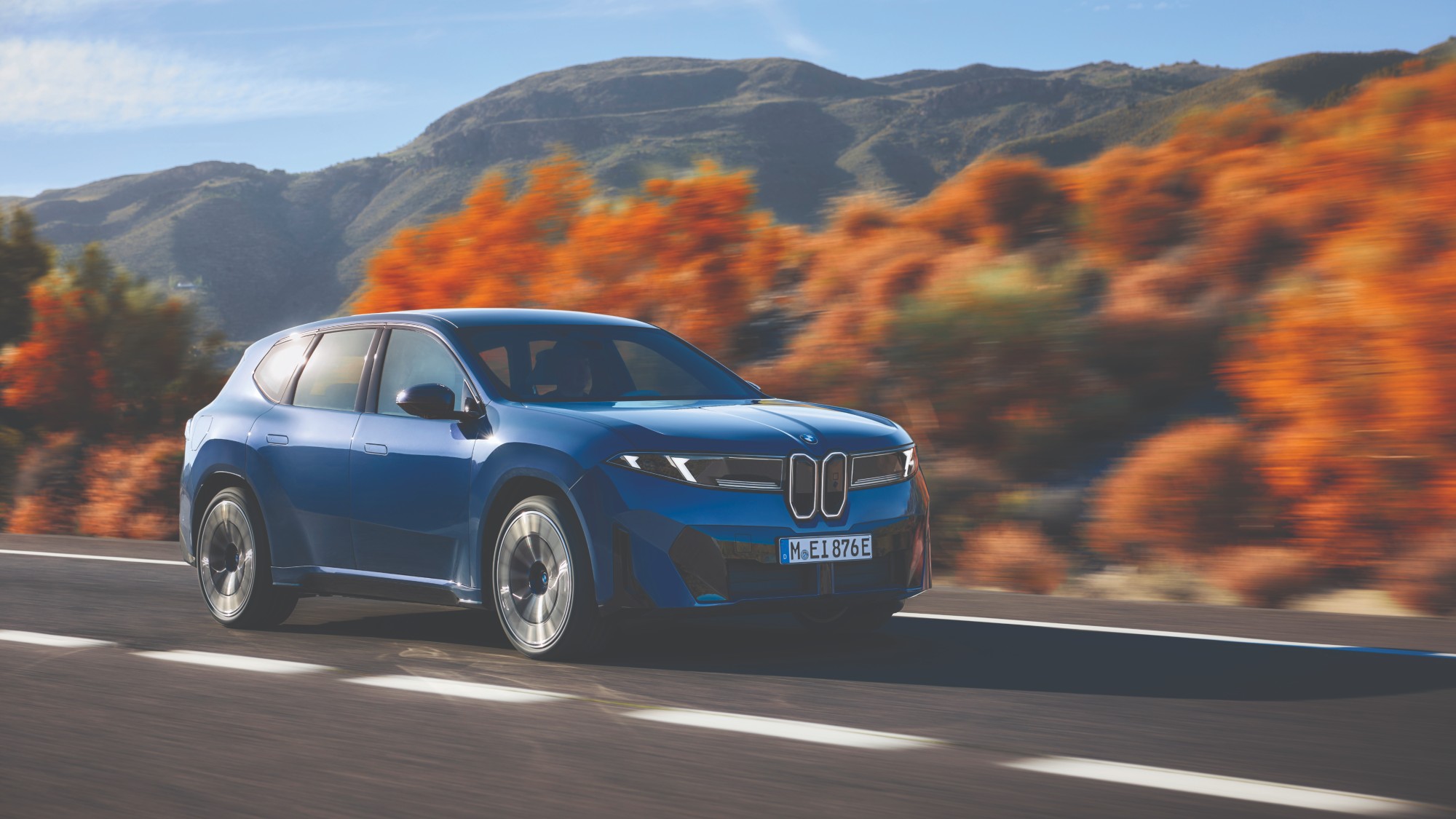Hydrogen cars explained: fuel cells, efficiency and zero emissions
Rollout of the vehicles being hampered by lack of tech infrastructure

A free daily email with the biggest news stories of the day – and the best features from TheWeek.com
You are now subscribed
Your newsletter sign-up was successful
When Business Secretary Kwasi Kwarteng unveiled the UK’s first Hydrogen Strategy last month, he said that the fuel had “the potential to transform the way we power our lives”.
One such transformation is already being seen in motoring. From as far back as the Second World War, technicians have used hydrogen gas to power vehicles as a cleaner alternative to petrol.
Interest and investment in hydrogen technology for use in cars has ramped up significantly since the 1990s. And with the government having confirmed that sales of new petrol and diesel cars will be banned in the UK from 2030, further funding is set to come pouring in.
The Week
Escape your echo chamber. Get the facts behind the news, plus analysis from multiple perspectives.

Sign up for The Week's Free Newsletters
From our morning news briefing to a weekly Good News Newsletter, get the best of The Week delivered directly to your inbox.
From our morning news briefing to a weekly Good News Newsletter, get the best of The Week delivered directly to your inbox.
The technology
Hydrogen-powered cars do not contain combustion engines. Instead, “the key to a hydrogen car is the fuel cell”, said Driving Electric.
The gas enters the fuel cell from a tank and mixes with oxygen to create water in a chemical reaction that “generates electricity that is used to power the motors that drive the wheels”, explained Hydrogen Hub, an industry-led community of stakeholders in hydrogen and fuel cell supply chain. “Hydrogen tanks are refuelled in a process that’s pretty much the same as with a petrol or diesel car,” the group added.
Hydrogen vs. electric cars
A free daily email with the biggest news stories of the day – and the best features from TheWeek.com
The carbon footprints of hydrogen-powered and electric vehicles are similar, but the former can travel much further without needing to refuel - and when they do, the process takes “minutes rather than hours”, said Driving Electric.
All the same, “the sceptics’ first argument against hydrogen vehicles” is efficiency, said Auto Express. To create hydrogen to use in power cells, electricity is converted into the gas, usually via electrolysis - a process in which about 25% of the source energy is lost, according to Tom Baxter, a chemical engineering lecturer at Aberdeen University.
The resulting hydrogen is then “compressed, chilled and transported” to a hydrogen fuelling station, which loses about another 10%, Baxter explained in an article on The Conversation. And “once inside the vehicle”, a further 25% of the source energy is lost in converting the hydrogen back to electricity and using it to power the engine, he wrote.
According to Baxter’s calculations, only 38% of the initial energy, or 38 watts out of 100, in this “wire to gas to wire” process is eventually used. By comparison, electric cars are almost twice as efficient, using about 80 of every 100 watts of the initial energy.
Car industry bosses have also lined up to “pour cold water” on hopes for the mass rollout of hydrogen fuel cell vehicles, said the Financial Times. Volkswagen, “the world’s second-biggest by sales, has all but abandoned its hydrogen plans”, the paper reported. And German rival Mercedes “quietly shelved its last passenger car fuel cell project last year, while BMW maintains only a toehold in the technology”.
However, Toyota and Hyundai “continue to invest heavily” in the technology, with the latter aiming to slash the cost of the key components of fuel cell cars by more than half by 2030.
Investment drive
Despite the various drawbacks involved, “for truly sustainable mobility, hydrogen is a fuel that cannot be ignored”, said Auto Express. Hydrogen cars produce zero carbon emissions from their exhausts.
Nevertheless, “hydrogen’s credentials as a clean energy source remain an issue”, said the FT, which pointed out that not all hydrogen is created equal.
“Green” hydrogen is made using electricity from renewable energy sources, while “blue” hydrogen uses natural gas, with any carbon emissions captured and stored, or reused.
On the more harmful end of the spectrum, “grey” hydrogen uses natural gas but without emissions being captured, and “brown” hydrogen is derived from thermal coal. Both are comparatively more cost-effective but have a greater environmental impact.
That’s not to say that electric vehicles necessarily fare better on the emissions front, however. “Lithium-ion battery production is very energy-intensive,” Jon Hunt, Toyota’s lead for the commercialisation of hydrogen fuel cell vehicles, told Auto Express.
By Hunt’s estimations, a typical 100kWh battery “will give a potential range of 250 miles and, in order to produce that battery, it will take around 20 tonnes of CO2”.
“A typical battery lasts for 150,000 miles, so that equates to around 83g/km of CO2. Then, when you take into account charging over that same distance, the same battery car will deliver 124g/km of CO2 over its lifetime,” he said. By comparison, according to Hunt, a hydrogen car's emissions could be as low as 60g/km.
State of play
Sales of hydrogen vehicles are currently much lower than those of electric cars in part because the infrastructure to support their widespread use does not yet exist.
Hydrogen vehicles need to be refuelled at specialised stations, of which there were only 11 operating in the UK, according to latest data from government advisors UK H2 Mobility. That compares with more than 42,000 electric charging point connectors recorded by EDF Energy.
So investment in hydrogen infrastructure will be an important part of the government’s Hydrogen Strategy.
Another issue with hydrogen cars is cost. A Hyundai Nexo hydrogen vehicle costs more than £68,000, while the Toyota Mirai is more than £54,000.
The average cost of an electric car in the UK is £44,000, with some carrying price tags as low as £17,350, according to finance site NimbleFins.
Hydrogen cars are currently also relatively expensive to refuel.
However, with car giants including Toyota working to drive down hydrogen car production costs, fans of the technology hope a less pricey generation of new vehicles is just down the road.
Driving experience
Toyota’s Mirai is “silent and sleek” to drive, said The Guardian Australia’s Matilda Boseley. In fact, “as long as you live near a refuelling station”, the experience is “amazing”.
That may be a big “if” for drivers in the UK at the moment. However, wrote The Scotsman’s Alastair Dalton, “cruising along” an Aberdeen bypass in the same vehicle, “it took many miles to make a dent in the fuel gauge”.
And when he did have to stop to refuel, the process was “simple” and quick - though the cost of fuel did come as “quite a surprise”.
-
 James Van Der Beek obituary: fresh-faced Dawson’s Creek star
James Van Der Beek obituary: fresh-faced Dawson’s Creek starIn The Spotlight Van Der Beek fronted one of the most successful teen dramas of the 90s – but his Dawson fame proved a double-edged sword
-
 Is Andrew’s arrest the end for the monarchy?
Is Andrew’s arrest the end for the monarchy?Today's Big Question The King has distanced the Royal Family from his disgraced brother but a ‘fit of revolutionary disgust’ could still wipe them out
-
 Quiz of The Week: 14 – 20 February
Quiz of The Week: 14 – 20 FebruaryQuiz Have you been paying attention to The Week’s news?
-
 BMW iX3: a ‘revolution’ for the German car brand
BMW iX3: a ‘revolution’ for the German car brandThe Week Recommends The electric SUV promises a ‘great balance between ride comfort and driving fun’
-
 The best new cars for 2026
The best new cars for 2026The Week Recommends From SUVs to swish electrics, see what this year has to offer on the roads
-
 David Attenborough at 99: a 'radical' voice for climate action
David Attenborough at 99: a 'radical' voice for climate actionIn The Spotlight In his new film 'Ocean', TV's best-known naturalist delivers his strongest message yet
-
 The secrets of lab-grown chocolate
The secrets of lab-grown chocolateUnder The Radar Chocolate created 'in a Petri dish' could save crisis-hit industry
-
 Kyoto: 'total thrill ride' explores pivotal climate change conference
Kyoto: 'total thrill ride' explores pivotal climate change conferenceThe Week Recommends Play centres on 'cut-throat diplomacy' surrounding the United Nations
-
 Bovaer: the new dairy additive prompting boycotts and conspiracy theories
Bovaer: the new dairy additive prompting boycotts and conspiracy theoriesIn The Spotlight Manufacturer says it wants to reduce methane emissions from cows but social media criticism has grown
-
 4 tips for hosting an ecofriendly Thanksgiving
4 tips for hosting an ecofriendly ThanksgivingThe Week Recommends Coming together for the holidays typically produces a ton of waste, but with proper preparation, you can have an environmentally friendly gathering.
-
 In 'Twisters,' there are no winds of (climate) change
In 'Twisters,' there are no winds of (climate) changeTalking Points The weather-focused blockbuster kicks up a swirl of controversy over a conspicuous and deliberate omission